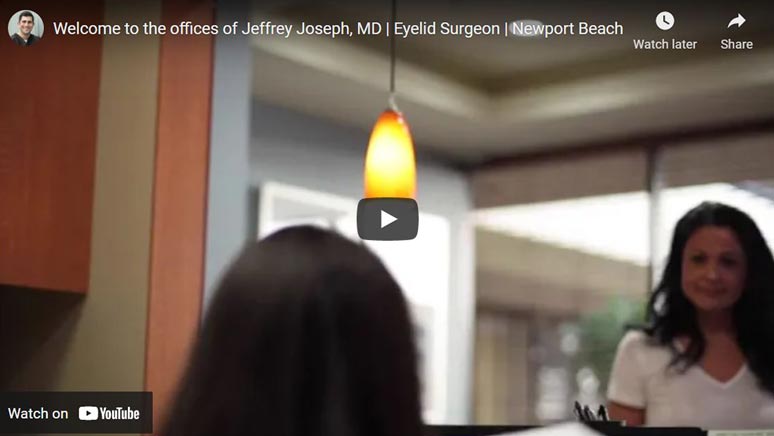Tear Duct Surgery
California's Leading Oculofacial Center
Financing
The Importance of Healthy Tears
Believe it or not, your eye does not produce tears just when you are upset. Your tear ducts are constantly producing tears to help clear your eye of irritants and keep it from getting too dry. If a tear duct blockage occurs, your tears can no longer drain appropriately. The effects can range from inconvenience to eye health risks such as infection.
If you are worried that there may be an issue with your tear production, give us a call, and we will evaluate your specific circumstance. At In Focus, we never want to make you cry, but we do want to make sure you are able to!
How Do I Recognize Tear Duct Problems?
- Excessive tearing. It is expected to feel an overabundance of tear production when you are chopping onions or watching a sad movie. But if you find your eye producing a large volume of tears when it shouldn’t, this could mean your tear duct is blocked in some way, stopping your tears from draining.
- Blurred vision. This could imply your eye is being irrigated too much or too little, affecting your eyesight.
- Redness or irritation. If your eye is not being irrigated as much as it should be, it can get dried out.
- Pain and swelling in the corner of the eye. Don’t live with pain longer than you have to. Contact us, and we’ll ensure your issues are fixed.
What Causes Tear Duct Problems?
- Dryness: Believe it or not, one of the primary causes of this condition is excessive eye dryness. If your eyes are too dry, your tear ducts may be overcompensating. If your eyes are irritated more than they should be, and if tearing seems to occur at specific times of day, or in particular weather conditions, dryness could be the cause.
- Blepharitis: An inflammation of the eyelids. This is a prevalent condition that can propagate dry eye symptoms.
- Tear Duct Blockage: There might also be something blocking your eyes from draining properly. This can be caused by anything from trauma to infection or even cancer (although this is rare). During your examination, we will get to the bottom of what exactly is causing your problem.
Tear Duct Surgery Overview
If you are dealing with a blockage, then surgery may be necessary. A partial blockage can be fixed with a simple procedure that involves dilating the duct so the obstruction can be removed. A more complicated blockage may require what’s known as a dacryocystorhinostomy (DCR) surgery. With this treatment, a new pathway is formed to allow the tears to drain, bypassing the obstruction completely.
In some cases, we may clear a blocked tear duct without surgery. If the blockage is caused by a tumor, we may also need to remove that. In either case, you want to be certain you have an experienced surgeon. Working with the eye area requires specific training and expertise that general reconstructive surgeons may not have.
At a Glance: Tear Duct Surgery
- Procedure Type: Reconstructive, functional
- Procedure Duration: < 1 hour (usually about 30 minutes)
- Anesthesia: Local anesthetic
- Results: Almost immediate
- Recovery: Mild, 1 to 2 weeks
Recovery and Downtime
Schedule a Consultation Today
When you set up a consultation at In Focus, we ensure you stay informed about every element of the procedure. We want you to feel as if you are a part of the process, so you can trust in getting the results you need.
We will examine your specific symptoms before providing you with a comprehensive estimate. Let’s make those tears go away! Call today to learn more about tear duct surgery options and how we can restore health to your eyes.


